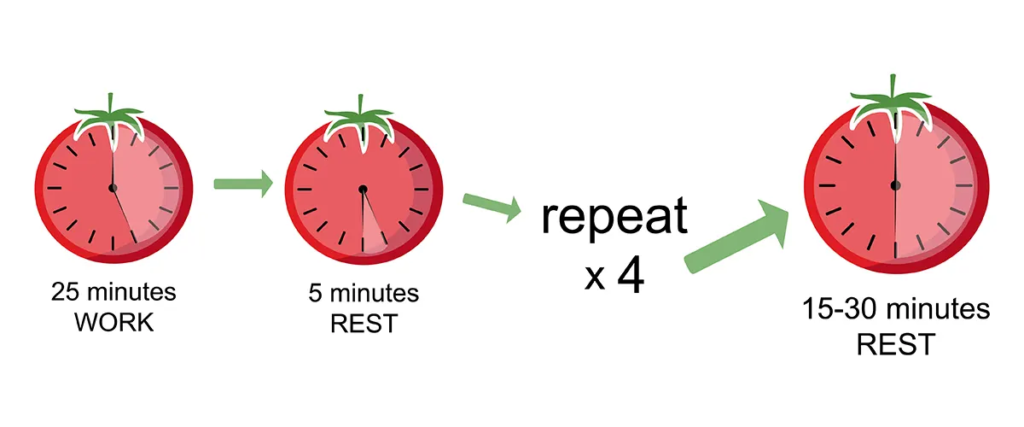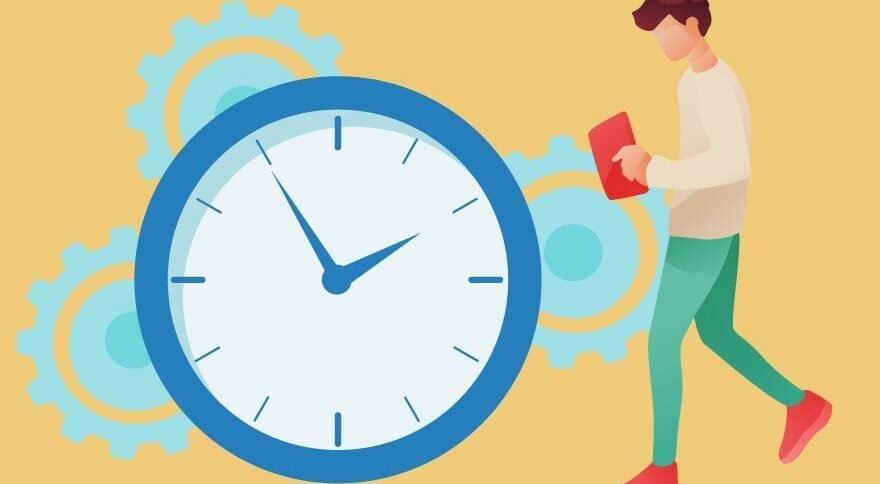How to Study for Long Hours?
While preparing for examinations, we often seek efficient methods to enhance focus, optimize time management, and sustain extended study sessions. The prospect of completing the exam syllabus and having some well-deserved relaxation time brings immense relief. Some individuals endorse the idea of studying with short breaks as it aids in better knowledge retention. Nevertheless, there are ways to incorporate more study hours into your routine without compromising focus. If you desire effective strategies and techniques to consistently study at home or college for longer durations, you’ve arrived at the perfect destination. Let’s delve into valuable advice and tactics to extend your study routine while maintaining knowledge retention and focus.
How to Study for Long Hours without Getting Bored?

Studying for long hours can indeed be challenging, but with the right approach and mindset, it can become more manageable and even enjoyable. Here are some tips to help you study for extended periods without getting bored:
- Break It Down: Divide your study session into smaller, manageable chunks. This approach can make studying feel less overwhelming, and achieving mini-goals can be motivating.
- Create a Schedule: Develop a study schedule that includes breaks and rewards. Knowing when you have breaks and something to look forward to can keep you motivated during intense study sessions.
- Find Your Productive Time: Identify the time of day when you are most alert and focused. Study during these peak hours to make the most of your energy and mental clarity.
- Change Subjects or Topics: If you feel yourself getting bored with a particular subject or topic, switch to something else for a while. This variation can keep your mind engaged and prevent monotony.
- Active Learning: Instead of passively reading or listening, engage in active learning techniques like summarizing, teaching the material to someone else, or solving practice problems. Active participation enhances retention and prevents boredom.
- Use Visual Aids: Incorporate visual aids like diagrams, flowcharts, or flashcards to make studying more interactive and stimulating.
- Group Study: Studying with friends or classmates can make the process more enjoyable and allow for discussions and sharing of ideas.
- Change Study Locations: If possible, switch up your study environment occasionally. A change of scenery can revitalize your focus.
- Reward Yourself: Set small rewards for yourself after completing specific study milestones. Treat yourself to something you enjoy, like a snack, short break, or a quick fun activity.
- Stay Active: During breaks, engage in physical activities or exercise to refresh your mind and body.
- Stay Hydrated and Snack Smartly: Dehydration and unhealthy snacking can lead to sluggishness and boredom. Drink enough water and opt for nutritious snacks to maintain your energy levels.
- Mindfulness and Meditation: Practice mindfulness or short meditation sessions to recenter your mind and increase your focus.
- Use Technology Wisely: Leverage educational apps, online resources, and interactive study tools to keep things engaging and fresh.
- Listen to Music or White Noise: Some people find background music or white noise helpful in maintaining focus during study sessions.
- Take Adequate Rest: Ensure you get enough sleep each night to avoid burnout and fatigue during study hours.
Science-backed Technique to Focus While Studying

One science-backed technique to enhance focus while studying is called the “Pomodoro Technique.” This method was developed by Francesco Cirillo in the late 1980s and has gained popularity for its effectiveness in boosting productivity and concentration. Here’s how it works:
- Set a Timer: Choose a specific task or subject you want to study and set a timer for 25 minutes. This interval is known as one “Pomodoro.”
- Study Intensely: During the 25-minute Pomodoro session, focus solely on your chosen task. Avoid any distractions or interruptions.
- Take a Short Break: Once the timer goes off, take a short break of about 5 minutes. Use this time to relax, stretch, or do something unrelated to your study.
- Repeat and Rest: After the short break, start another Pomodoro session for 25 minutes. Continue this cycle of 25 minutes of focused study followed by a 5-minute break. After completing four Pomodoros (about 2 hours of study), take a more extended break of around 15-30 minutes.
The Pomodoro Technique leverages the idea of working in short, concentrated bursts with regular breaks in between. This approach aligns with the brain’s natural ability to focus and helps prevent mental fatigue and boredom that may occur during long study sessions.

The technique is supported by research indicating that the brain can maintain optimal focus and productivity for limited periods before requiring a break. Additionally, the structured intervals can improve time management, increase motivation, and prevent procrastination.
To implement the Pomodoro Technique effectively:
- Choose a suitable study environment with minimal distractions.
- Use a timer or a Pomodoro app to track your study and break intervals.
- Stay disciplined and committed to completing the full Pomodoro before taking a break.
- Adjust the intervals to suit your individual attention span and energy levels.
By adopting the Pomodoro Technique, you can make your study sessions more efficient and maintain high levels of focus and productivity throughout your study sessions.
Essential Tips & Tricks to Study for Longer Period

Studying for longer periods requires effective strategies and techniques to maintain focus, productivity, and motivation. Here are essential tips and tricks to help you study for extended durations:
- Plan and Organize: Create a study schedule or timetable that outlines your study sessions, breaks, and specific subjects or topics to cover. Having a structured plan will keep you on track and help you manage your time efficiently.
- Set Realistic Goals: Break down your study goals into manageable tasks. Setting achievable milestones will give you a sense of progress and prevent feeling overwhelmed.
- Use Active Learning Techniques: Engage actively with the study material by summarizing, teaching, or discussing it with others. Actively involving yourself in the learning process enhances understanding and retention.
- Prioritize Important Topics: Focus on the most crucial topics first, especially those you find challenging or need more time to grasp.
- Minimize Distractions: Find a quiet and comfortable study environment, free from distractions like smartphones, social media, or noisy surroundings.
- The Pomodoro Technique: As mentioned earlier, use the Pomodoro Technique to study in focused intervals with short breaks in between.
- Practice Mindfulness: Stay present and attentive during your study sessions. If your mind wanders, gently bring it back to the task at hand.
- Stay Hydrated and Eat Well: Drink enough water and have nutritious snacks to keep your energy levels up and maintain focus.
- Get Adequate Rest: Ensure you get enough sleep each night to be alert and productive during your study hours.
- Review Regularly: Periodically review and revise the material you’ve covered to reinforce your understanding and retention.
- Use Visualization Techniques: Visualize complex concepts or information in your mind to make them more memorable and understandable.
- Teach Others: Teaching the material to someone else can deepen your own understanding and help you remember it better.
- Exercise and Take Breaks: Incorporate short exercise or stretching breaks during longer study sessions to refresh your mind and body.
- Practice Retrieval: Test yourself with practice questions or try to recall key information from memory. This active retrieval enhances long-term retention.
- Variation and Interleaving: Mix up subjects or topics during your study sessions. Switching between different subjects can keep your mind engaged and prevent monotony.
- Use Mnemonics: Employ mnemonic devices like acronyms, rhymes, or visual associations to remember complex information.
- Stay Positive and Motivated: Remind yourself of the reasons why you are studying and the goals you want to achieve. Stay positive and focus on your progress.
- Reward Yourself: Celebrate your achievements, no matter how small. Treat yourself to something you enjoy after completing a challenging study session.
How Longer Study Sessions Can Be Helpful?

Longer study sessions can be beneficial for several reasons, provided they are approached with a strategic and mindful approach. Here are some ways in which longer study sessions can be helpful:
- In-depth Understanding: Lengthy study sessions allow you to delve deeply into complex topics and subjects. You can explore the material in greater detail, leading to a more profound understanding of the concepts.
- Connecting Concepts: Extended study sessions enable you to connect different ideas and concepts across various topics. This holistic approach enhances your overall grasp of the subject matter.
- Continuous Flow: Once you get into a flow state during a longer study session, you can maintain focus and concentration, which promotes efficient learning.
- Reduction of Time Wastage: With longer study sessions, you can reduce the time spent on frequent starts and stops that may occur during shorter study sessions.
- Completing Lengthy Tasks: Some study tasks, like reading long chapters or reviewing comprehensive notes, require extended study sessions to complete without interruption.
- Retrieving Information from Memory: Longer study sessions facilitate more opportunities for retrieval practice, where you challenge yourself to recall information from memory. This aids in long-term retention.
- Developing Study Stamina: Regularly engaging in longer study sessions can help you build study stamina over time. You become better at sustaining focus for extended periods.
- Getting into Complex Material: For complex or challenging subjects, longer study sessions give your mind the time it needs to grasp difficult concepts thoroughly.
- Reduced Time Pressure: Longer study sessions can reduce the feeling of time pressure. When you have more time at hand, you can study at a more relaxed pace, which can enhance comprehension.
- Consolidation of Knowledge: Spending more time on a particular topic allows you to reinforce your understanding and consolidate the knowledge in your long-term memory.
However, it’s important to note that longer study sessions may not be suitable for everyone, and they come with some potential drawbacks. Extended periods of intense focus can lead to mental fatigue and decreased productivity if not managed properly. To make longer study sessions more effective:
- Incorporate short breaks to rest your mind and prevent burnout.
- Use active learning techniques to stay engaged and retain information.
- Maintain a conducive study environment, free from distractions.
- Listen to your body and take longer breaks if needed.
The key is to strike a balance between longer study sessions and ample breaks, ensuring that you maintain focus, motivation, and overall well-being. It’s essential to understand your own learning style and preferences to find the most effective study routine for you.
Study for a Long Time at Night

Studying for a long time at night can be challenging, but with the right approach, you can make it more manageable and productive. Here are some tips to help you study effectively during late-night sessions:
- Plan Ahead: Have a clear study plan outlining what subjects or topics you will cover during your night study session. Being organized will help you stay focused and avoid wasting time.
- Take a Power Nap: Consider taking a short power nap (around 20-30 minutes) before starting your late-night study session. This can help refresh your mind and increase alertness.
- Choose the Right Environment: Find a quiet and comfortable study space with good lighting to minimize distractions and promote concentration.
- Stay Hydrated and Snack Smartly: Keep a bottle of water nearby to stay hydrated, and have light, nutritious snacks available to maintain energy levels.
- Take Regular Breaks: Break up your study session into manageable blocks, and take short breaks every hour to rest your eyes and stretch your body.
- Avoid Heavy Meals: Heavy meals can make you feel sluggish and sleepy, so opt for a light dinner before your study session.
- Stay Engaged with Active Learning: Use active learning techniques such as summarizing, teaching, or solving practice questions to keep your mind engaged and retain information better.
- Use Technology Wisely: Leverage technology tools like online resources, educational apps, and digital flashcards to enhance your late-night study experience.
- Mind Your Posture: Sit in a comfortable chair with proper posture to avoid discomfort and maintain focus.
- Control the Lighting: Adjust the brightness of your study area to a level that helps you stay awake without straining your eyes.
- Set Realistic Goals: Break down your study goals into achievable tasks for the night, and reward yourself when you accomplish them.
- Stay Positive: Maintain a positive mindset and remind yourself of the reasons why you are studying late at night. Focus on the progress you are making.
- Take Short Walks: If you start feeling drowsy, take short walks to get your blood flowing and combat fatigue.
- Avoid Caffeine Overload: While a cup of coffee or tea can help you stay awake, avoid excessive caffeine consumption, as it may interfere with your sleep later.
- Plan for Proper Rest: After your late-night study session, make sure to allocate enough time for sleep to avoid sleep deprivation.
Remember that studying late at night may not be suitable for everyone, and it’s essential to listen to your body. If you find that you are consistently struggling to stay alert and focused during late-night sessions, consider adjusting your study schedule to better align with your natural energy levels. Prioritize your overall well-being, and aim to strike a balance between effective studying and getting sufficient rest.
FAQs
How can I improve my study habits?
Improving study habits involves creating a structured study schedule, staying organized, using active learning techniques, finding a suitable study environment, setting specific goals, taking regular breaks, and practicing self-discipline.
What are some effective note-taking methods?
Effective note-taking methods include the Cornell method, outlining, mind mapping, and the SQ3R method (Survey, Question, Read, Recite, Review).
How do I manage my time effectively while studying?
Time management can be improved by creating a study schedule, prioritizing tasks, using tools like planners or apps, avoiding procrastination, and setting realistic deadlines.
How can I stay motivated to study?
To stay motivated, set clear goals, remind yourself of the reasons for studying, break tasks into smaller, achievable steps, reward yourself for progress, and surround yourself with a positive study environment.
What are some effective study techniques for exams?
Effective study techniques for exams include creating a study timetable, using active recall and spaced repetition, practicing past exam papers, and teaching the material to someone else.
How can I reduce exam anxiety?
To reduce exam anxiety, practice deep breathing and relaxation techniques, get enough sleep before the exam, maintain a healthy lifestyle, and avoid last-minute cramming.
What are the best practices for online learning?
For online learning, set up a dedicated study space, minimize distractions, participate actively in virtual classes, engage in discussions, and reach out to instructors or peers for help when needed.
